Historical Knowledge Math Worksheets for 9-Year-Olds
5 filtered results
-
From - To
Explore our engaging Historical Knowledge Math Worksheets designed specifically for 9-year-olds! These worksheets seamlessly blend mathematics with intriguing historical themes, making learning fun and captivating. Your child will enhance their math skills while discovering key historical events and figures, fostering both numerical abilities and a love for history. Each worksheet is tailored to support curriculum goals, featuring age-appropriate exercises that encourage critical thinking and problem-solving. Whether in the classroom or at home, these resources are perfect for nurturing a well-rounded education. Dive into the past while mastering essential math concepts and skills—help your child build a bright future through learning today!
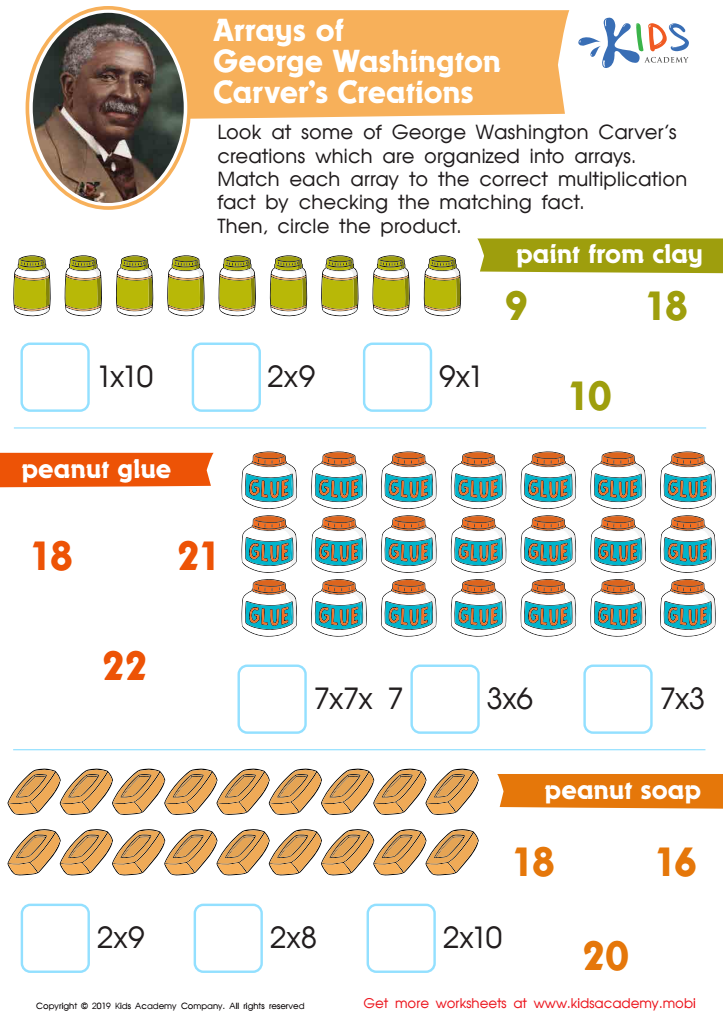

Arrays of George Washington Carver’s Creations Worksheet
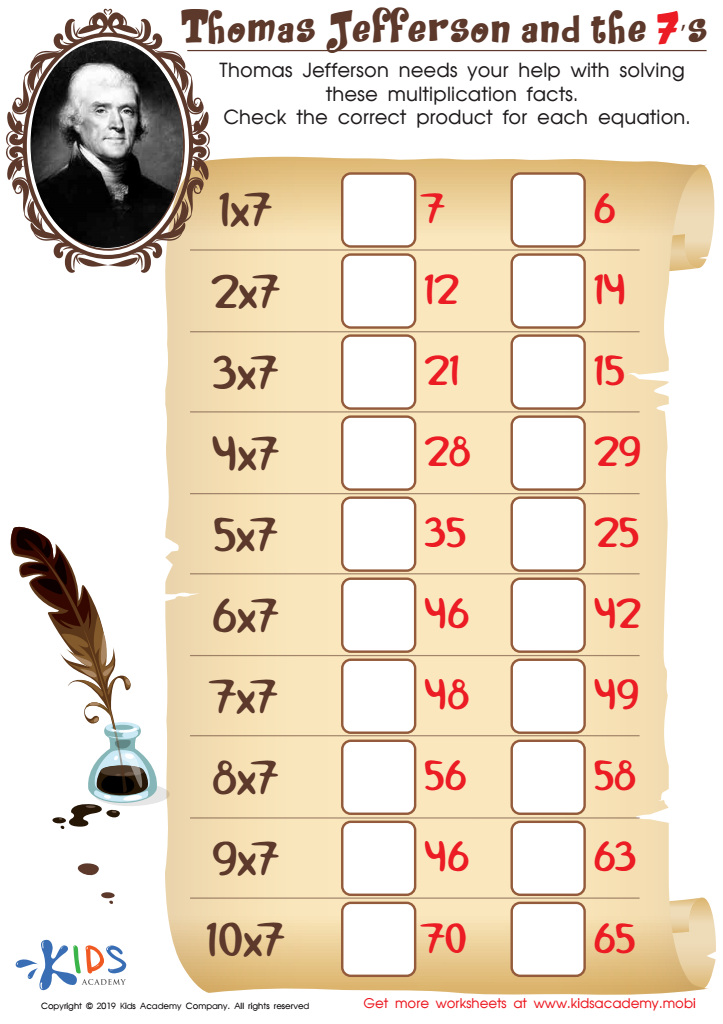

Thomas Jefferson and the 7’s Worksheet
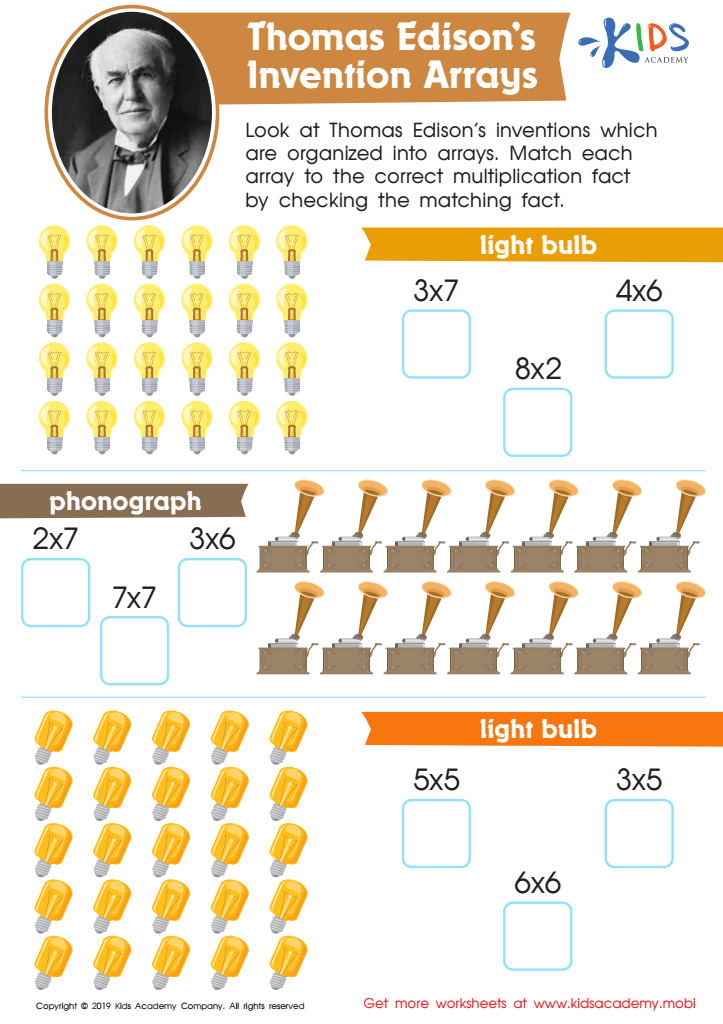

Thomas Edison’s Invention Arrays Worksheet
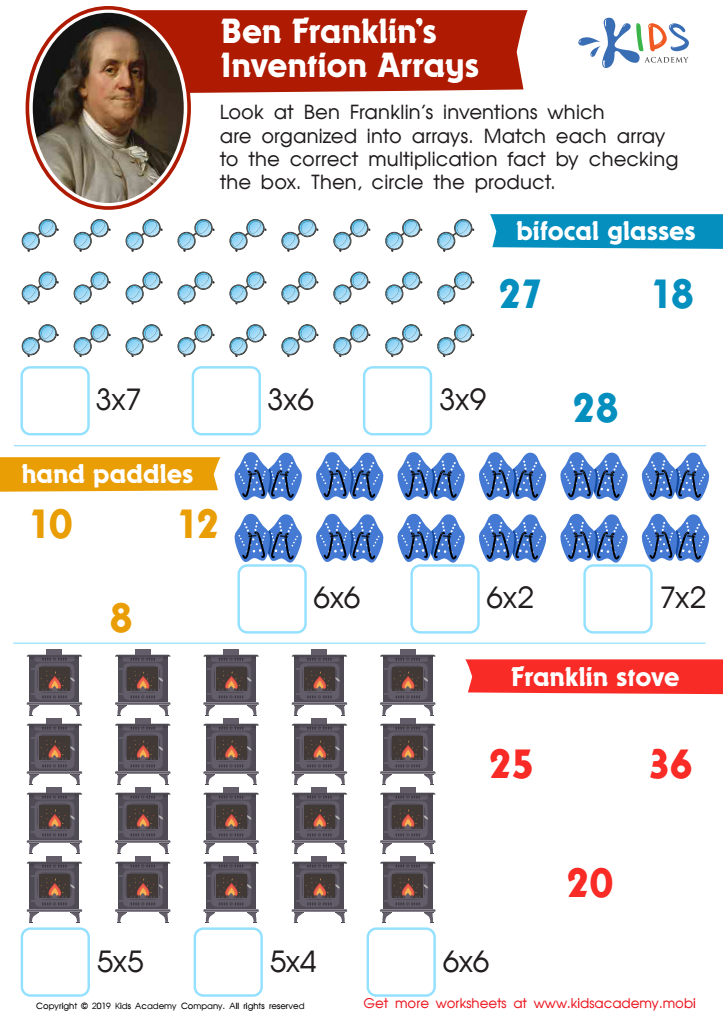

Ben Franklin’s Invention Arrays Worksheet
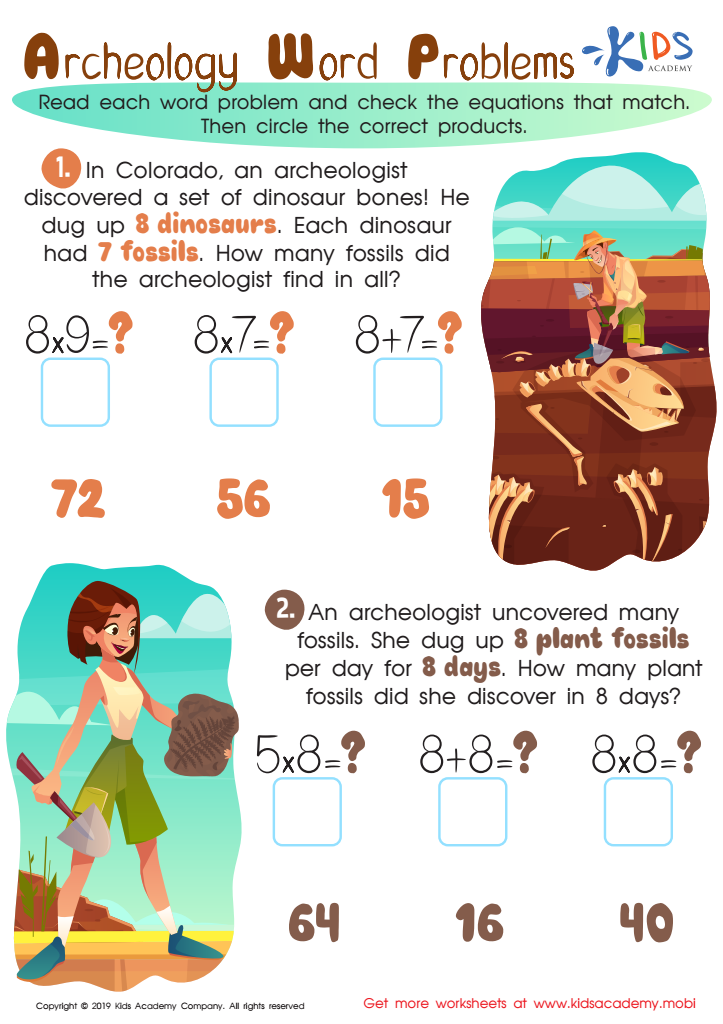

Archeology Word Problems Worksheet
Parents and teachers should prioritize historical knowledge in math for 9-year-olds because it enriches their understanding of the subject and its relevance to the world. Learning about the evolution of mathematical concepts helps children see math not just as abstract numbers but as a vital tool used throughout history to solve real-world problems. For example, understanding how ancient civilizations like the Egyptians used geometry for construction can inspire children and show them the practical value of what they are learning.
Furthermore, historical math education promotes critical thinking. It allows students to appreciate different cultural contributions to mathematics, fostering respect and curiosity about diverse perspectives. This understanding can lead to a deeper appreciation of the global context of math, promoting inclusivity in the classroom.
Introducing historical episodes, such as famous mathematicians and pivotal discoveries, can engage students’ imaginations, making math lessons more relatable and memorable. Additionally, these stories relate to broader themes like perseverance and innovation, encouraging personal and moral growth. Ultimately, historical knowledge of math not only augments mathematical skills but also cultivates well-rounded, thoughtful individuals who appreciate the interplay between history, culture, and the mathematical concepts they encounter.
 Assign to My Students
Assign to My Students




















